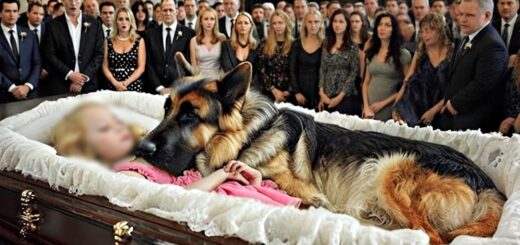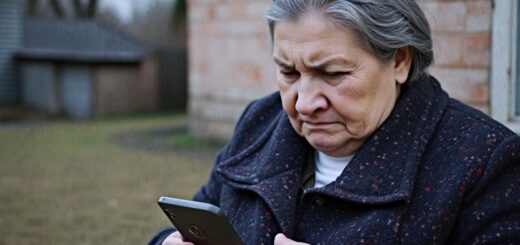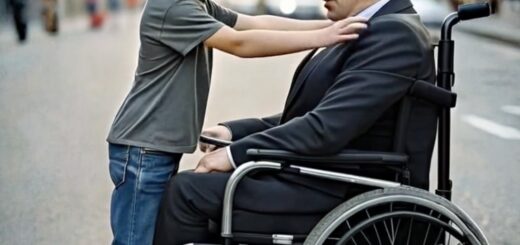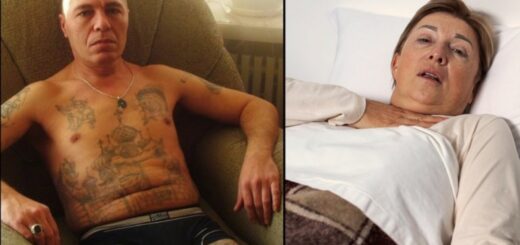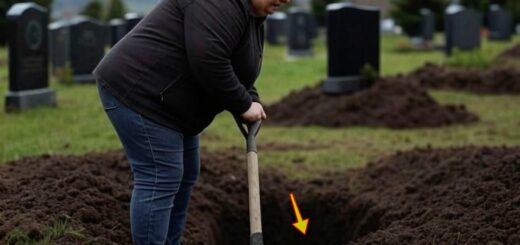A terminally ill millionaire woman wandered through a winter park, and upon seeing a freezing man with a child on a bench, she took them home…
Emily placed her hand on the table, closer to him, but didn’t touch. After her death, I tried to piece life back together. But the harder I tried, the more it crumbled.
One day, they took the apartment. Just based on a loan debt. I didn’t know she had taken it.
Wanted to help me buy equipment. Everything went to hell. Why didn’t you seek help? To whom? His eyes flashed.
Those I considered friends disappeared. Relatives? Everyone has their own families, their own kids. No one needs beggars, especially with a child.
Emily nodded. Slowly. Without words.
She knew that feeling—of being unnecessary. Only hers was different. You’re kind of needed by everyone, but no one is interested in you for real.
As soon as you stop being useful, that’s it. You’re just a shadow. I just don’t want Ethan to live thinking his father is a failure, said David.
He’s the only thing I have left. And I’ll do everything for him to have a childhood. At least some kind.
She looked at him with new respect. Not pity, exactly respect. Before her sat a man who had gone through hell but hadn’t become bitter.
Remained honest. And warm. You know, she said, looking into the cup, I saw myself in you.
Only the opposite. You lost everything and remained human. And I had everything but stopped being alive.
David didn’t know what to answer. So he just said: Thank you.
For letting us in. It’s you who let me in, she replied unexpectedly. Into your truth.
Into reality. Into what I hid for years behind success. They fell silent.
The room was quiet. Only the clock ticked, measuring time, of which both had less than others. The first days in Emily’s house became for David and Ethan something like rehabilitation, not physical, but emotional.
As if someone pressed pause in a movie where they were always running, and now they could just breathe. Ethan gradually stopped flinching at sharp sounds, got used to silence without threat. He started playing, laughing, even singing to himself.
But David felt anxiety returning with each day. Fresh bread in the mornings, warm bed, even quiet evenings on the veranda where Ethan drew snowmen on fogged windows couldn’t save him from it. Anxiety whispered: you’re here temporarily.
You’re a glitch in her system. And soon you’ll be fixed. He understood he couldn’t live at someone else’s expense.
It was too deeply ingrained in him: if you don’t provide for yourself, you disappear. So on the fourth day, he started looking for work. At breakfast, he apologized to Emily and went out into the icy city, into the gray funnel of vacancies, where people without connections, without a suit, but with a five-year-old son were needed by no one.
He went into cafes, offered to clean. Asked to be a helper at auto shops. Visited construction sites, even supermarkets.
Everywhere—the same look. Some said straight: you’re not suitable, others apologized: we’re full. One manager even looked at him like a bum and offered 50 dollars.
David turned and left, without taking it. Returning to the mansion each time became harder. He didn’t know what to say to Emily.
In the evenings, sitting in the living room with a cup of tea, he told Ethan fairy tales, pretending everything was fine. But his eyes gave him away. And Mrs. Harris saw it.
And Emily—felt it. Meanwhile, her condition began to falter. Not sharply, not dramatically, slyly and stealthily.
First—weakness. Then—dizziness. In a few days, she caught herself unable to read a paragraph without pausing.
Her head buzzed, as if someone had set a generator. She attributed it to fatigue. To the weather.
But deep inside, she understood—it had begun. One evening, returning from the doctor, Emily found David in the yard. He was clearing snow from the path, wrapped in her old down jacket, shovel in hand, face where stubbornness fought despair.
Seeing her, he straightened, wiping his forehead. Looking for work, he said shortly, as if justifying. Without documents, they won’t hire.
I applied for restoration; they were with us that night. Probably stolen while we slept. I didn’t realize right away.
Emily nodded. Silent. Just looked.
We’ll leave soon, he continued. I don’t want you… spending resources on us. It’s wrong.
You’ve done too much already. Are you ready to die from righteousness? she asked sharply. Or make your son live in an alley out of pride? David lowered his eyes.
She came closer. Tomorrow they’ll call you back. I connected acquaintances.
Documents will be done faster. Ethan needs to go back to school. He needs a future, understand? He nodded, without raising his gaze.
In that moment, he felt both saved and broken. As if someone took his broken wheel and replaced it with a new one, and he was still trying to roll on the old route. That same evening, she opened her laptop.
For the first time in recent weeks, she looked at work documents. Her deputy, young ambitious Olivia, had written recently: chaos in the supply department. «We need someone who can negotiate on sites, who knows the real procurement system, not theory.
We need a live person with field experience.» She stared at that line like a sign. A live person with field experience—that was David.
He was exactly what her company always lacked. Not a sales manager with an MBA, but a person able to set up a process from scratch, get a discount, negotiate with a crew, and not lose face. And importantly, he would never accept charity.
He would work. And Emily pondered. To lift him from zero—not in the sense of giving a job, but restoring faith in himself.
Maybe that was the point? To nurture not only the child, but the man able to become himself again. Not for romance. For justice.
Mrs. Harris, entering with a tray, found her at the laptop. Something happened? Thinking, said Emily, looking at the screen. I may have found the person I’ve been unable to find for years.
This about David? Yes. Only he doesn’t know it yet. They exchanged glances…



